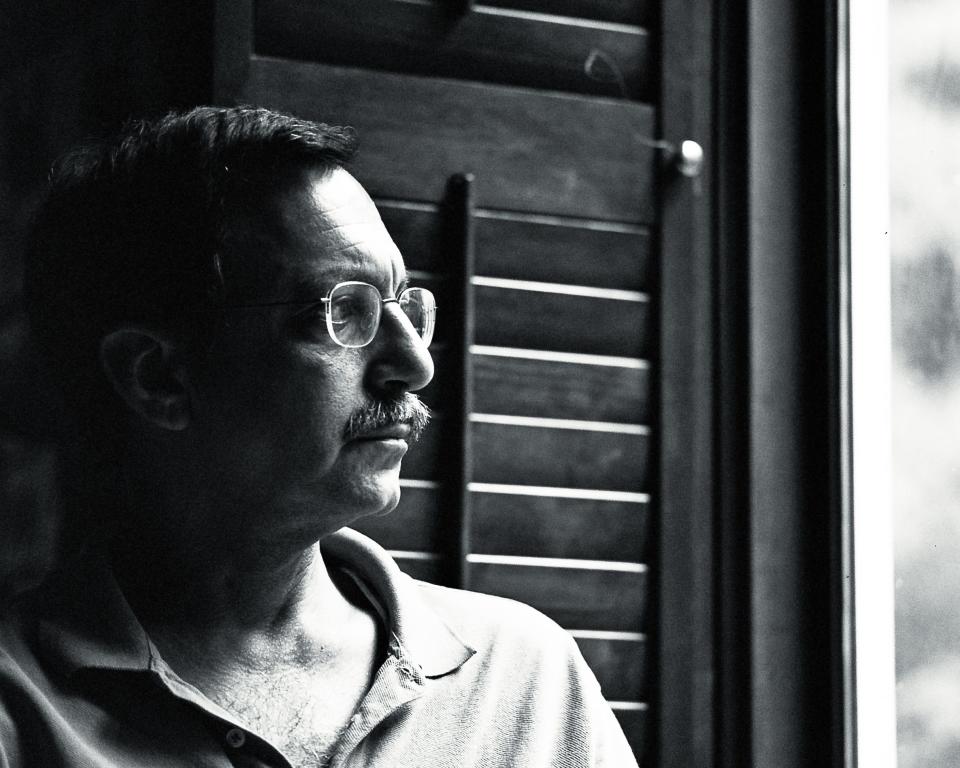Visiting Our Past: Hobos, 'goat man,' Biltmore Village's old days
"I've generally spent most of my life between the railroad tracks in Biltmore and the Royal Steakhouse in Fletcher," real estate developer and former Tri-Co Service Station owner Winston Pulliam remarked to Mike Blanton on Blanton's radio show ("Financially Speaking"). "And I want to emphasize how blessed I have been."
During the Great Depression, when he was a boy, Pulliam lived on his grandparents' 20-acre farm on Fairview Road, working the land.
"I peeled many a peach and pitted many cherries," he told me in a recent interview.
"We had caves on the back of our property," he recalled. "And hobos would stay in those caves, coming off the railroad. They had lard buckets to make coffee in, and I'd take them food when I was 8 or 9 years old."
His father advised him to take "a bag of something" to neighbors and say, "The lady next door just gave me this (for the hobos). What can you give me?"
After Saturday chores, Pulliam, nicknamed "Pullie," often went to hang out with his friends — Charles Thomas "Tommy" Koontz, Tommy Arakas and others in Biltmore Village, even though Oakley boys were discouraged from crossing into that territory.
But boys' friendships, during the Depression and World War II, crossed boundaries. Koontz's family was "as poor as Job's church mouse," he said in the recollection session with Pulliam.
His father, Ralph Koontz, "was a sick man when he was young, He had TB and spent time at the sanitarium in Swannanoa." He did various jobs.
"According to my mother," Koontz said, "we moved every time the rent came due."
Koontz' first memory of Biltmore Village was when "Mama" Gray, the landlord of the 7 All Souls Crescent upstairs apartment in which the Koontzes resided, came around yelling out, "Yoo-hoo, do you have anything for me today?"
Another early memory was of the goat man coming into the village with his goat and wagon for family photo ops. Tommy's mother, Elizabeth Vance Koontz, found the money for one such occasion in 1938.
The boys were friends with Harold and Ruel Austin, sons of Biltmore Estate's chief ranger, and had free access to the estate. "I slept probably 50 times in the Biltmore House," Pulliam recalled.
Harold and Ruel "had a pet deer they got as a baby, and bottle fed him," Pulliam recalled. "His name was Jim. ... I'm the only person that tried to ride Jim (unsuccessfully).
"Two weeks ago, I called Ruel and asked him, 'How did Jim die?' He said, 'They gave him to Laurence Brown, the sheriff, to put up on his farm. And Jim wandered into some fellow's back yard, and this man thought he was a wild deer, and shot him.'
"It was the worst of times and the best of times," Koontz recited, reflecting on the era that featured poverty and community, an empty belly and a fire in the belly, lightness of heart and darkness of circumstance.
"We had God in our lives," Pulliam said.
Darkness was what Koontz experienced off and on for a year when he was 6, staying in his bedroom with the windows curtained.
"I failed my first year of school at the Newton Academy up on Biltmore Avenue," he said, "because I was absent about every other week because I had every other childhood disease that came along — measles, the mumps, chickenpox, everything but scarlet fever.
"I remember that public nurse coming and tacking that yellow sign up on the door: Quarantine. People couldn't come to see you. You couldn't go out. You were isolated."
This was especially hard in a neighborhood in which there was so much social activity — people out on porches, children crossing yards under the care of dozens of surrogate parents, people doing business.
"I knew the names of everybody who lived from West Chapel Road to Biltmore," Koontz said.
Missing school was tough, too. It was not only an extension of the social scene, it was a field of dreams. Koontz would later serve as the longtime principal of Roberson High School. This past January, the new intermediate school on Overlook Road was named after him.
"I was in the sixth grade with Dewey Callaway," Pulliam related, "and the teacher asked us, 'What do you want to be when you grow up?'
"Dewey put down, 'I want to own the Biltmore Shoe Shop' (owned by L.A. Spake, who'd employ Dewey). He stayed 28 years in the Army, came back home, and bought that shoe shop."
Many kids went to work at an early age, often in jobs that served the community.
"I was hopping curb at the Hot Shot (Café) when I was 12," Pulliam recalled. "They had the hot dogs, hamburgers, roast beef, roast pork, cheeseburgers, barbecue, combination, ham, spam, ram, lamb, bull, beef and bear," he chanted.
Pullie's dream as a kid was to own a service station; and he accomplished that, first an Esso on Coxe Avenue, then the Tri-Co on Brook Street in Biltmore Village.
Tri-Co became the gathering place in the post-World War II years, as Pulliam worked 6 a.m.-9 p.m. and entertained as well as served customers. "We had printed on our charge tickets," he told Blanton, "We fix everything but broken hearts, and we work on them."

Rob Neufeld wrote the weekly "Visiting Our Past" column for the Citizen Times until his death in 2019. This column originally was published Nov. 5, 2012.
This article originally appeared on Asheville Citizen Times: Visiting Our Past: Hobos, 'goat man,' Biltmore Village's old days

